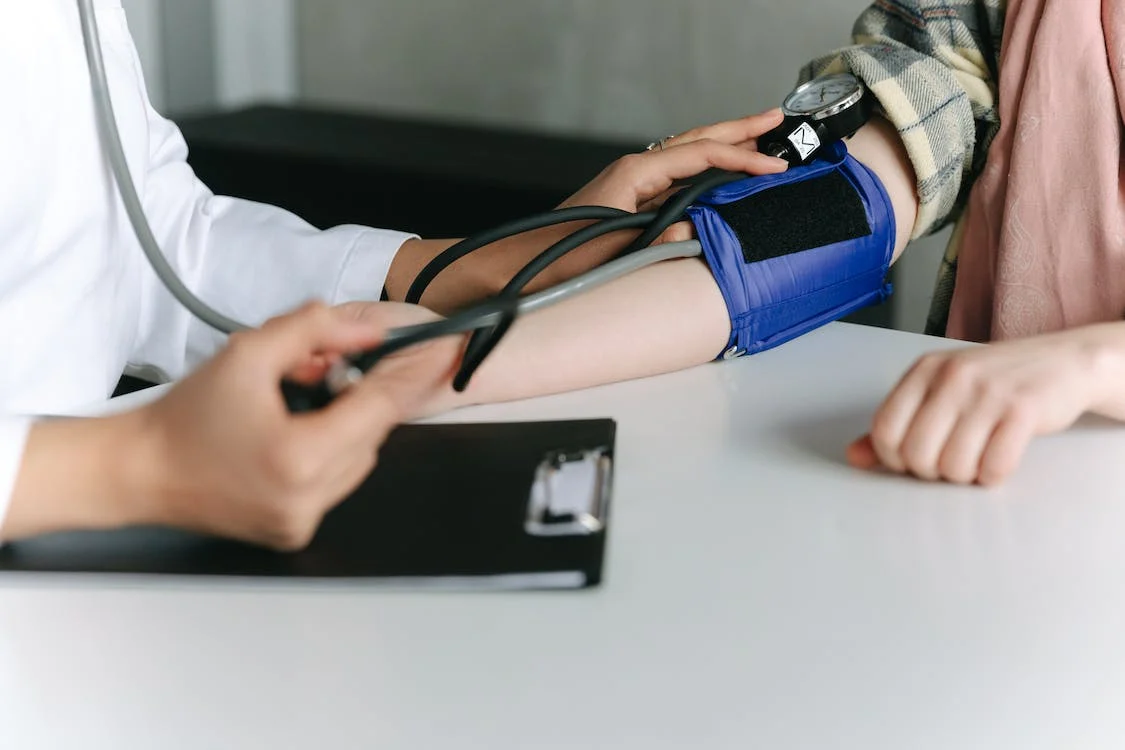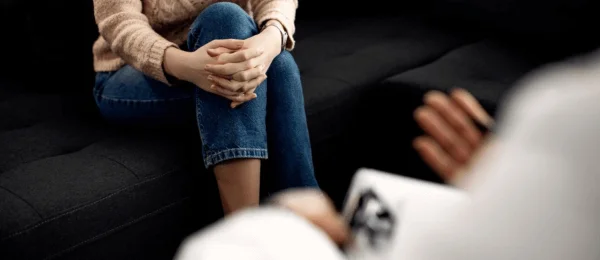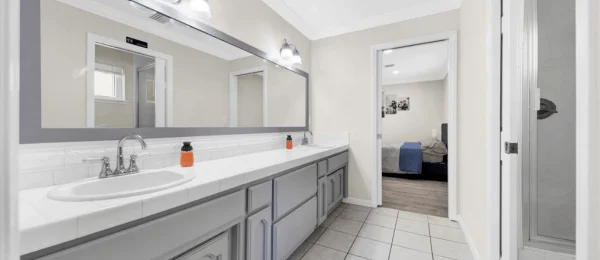
Bipolar Disorder Treatment Lancaster
Bipolar disorder, previously known as manic depression, induces extreme high and low mood swings.
These emotional highs (mania or hypomania) can make one feel full of energy or agitated, even euphoric. In contrast, emotional lows (depression) have the opposite effect, making one feel sad or have a loss of interest.
This mental health condition can affect a person’s behavior, judgment, energy, and concentration and can alter sleep patterns.
Bipolar disorder is a lifelong condition, and mood swings may occur occasionally or several times a year that can be controlled in most cases by applying psychotherapy with medication.
What May Cause Bipolar Disorder?
There is no specific cause for bipolar episodes, but factors such as biological differences or genetics may be involved. This means that if there is a close relative with this condition, it can be passed on through genes.
Biological differences show that people suffering from bipolar disorder have some physical changes in the brain. However, these reasons are still being researched as no exact factor can underline the actual cause of the condition.
Something that may trigger the first episode and develop into bipolar disorder could be through experiencing a traumatic event or being exposed to high levels of stress over a long time.
There could also be a link to alcohol or substance use that could have emotional strain and invoke variation in mood levels.

Categories Of Bipolar Disorder Symptoms
When someone is diagnosed with bipolar disorder, it is important to know there are different types of bipolar and other related conditions.
Because symptoms can include both hypomania and depression, they cause unpredictable variations in someone’s mood and how they behave, which can make daily activities difficult and stressful.
A manic episode occurs when a person experiences abnormal high mood, energy, and exaggerated behavior. The episode typically lasts a week and ends with an emotional crash or depression.
The category of episodes related to these mental health disorders are:
Bipolar I
This first type is diagnosed when a person has experienced at least one episode of mania preceded or followed by a major depressive episode or hypomanic episode. Psychosis may be a result of when mania breaks away from reality and may cause hallucinations or delusions.
Bipolar II
This disorder is referred to when a person has experienced at least one hypomanic episode and one major depressive mood without experiencing a manic episode.
Cyclothymic
This disorder is when a person has had at least two years of suffering from several attacks of hypomania and milder depression symptoms. For a child or teenager, it is less than one year.
Other Related Types
Bipolar and other related types of disorders may be caused by alcohol or substance abuse and other medical conditions that include multiple sclerosis, stroke, or Cushing’s disease.
It should be noted that Bipolar I and Bipolar II are two different diagnoses. Individuals with Bipolar I disorder may experience dangerous symptoms due to manic episodes, while those diagnosed with Bipolar II may experience longer periods of depression.
Symptoms can vary from person to person and may change over time. Bipolar disorder can develop at any age but is more prominent within the teenage to early 20s age bracket.
Understanding Bipolar Disorder Episodes
Firstly, mania and hypomania are distinctive episodes having the same symptoms. Mania is more extreme and can create difficult situations with work, studies, and relationships, Should mania produce hallucinations, delusion, and misconceptions of reality known as psychosis, hospital treatment may be required.
Both episodes include three or more of the following symptoms:
- Increased amount of energy
- Feeling of euphoria
- Rapid thoughts
- Impaired judgment
- Feeling on edge or unusually irritable
- Easily distracted
- Talking too much
- Needing less sleep
In the case of a major depressive episode, symptoms can affect social activities, daily responsibilities, and relationships.
A major depressive episode includes five or more of the following symptoms:
- Feelings of sadness, hopelessness, and depressed
- No interest in activities
- Weight alterations (gain or loss)
- Feelings of low esteem
- Fatigue and lack of energy
- Sleeping too much or too little (insomnia)
- Lack of concentration
- Suicidal thoughts

Symptoms Of Bipolar Disorder In Teenagers
Often, it can be difficult to diagnose bipolar disorder in children and teenagers as they tend to have normal ups and downs and emotional reactions, or if any of the symptoms shown are related to stress, trauma, or other co-occurring mental health disorders rather than associated with bipolar disorder.
Youngsters may show differences in major depressive, manic, or hypomanic episodes, which can vary from the episodes experienced by an adult. Teenagers’ moods may quickly turn during different episodes, and some may not show mood changes between episodes. More severe mood changes than normal are generally a clearer sign of bipolar disorder in children.
What Risks Can Bipolar Disorder Cause?
Bipolar disorder is a serious mental health disorder, and if you are struggling with this condition, it is possible you also have another co-occurring mental health illness.
A co-occurring condition should be treated simultaneously, as some mental health illnesses can make treatment less effective or can worsen the symptoms of bipolar disorder. Some other co-occurring conditions may include:
- Attention Deficit Hyperactivity Disorder (ADHD)
- Anxiety
- Appetite
- Substance abuse, including alcoholism
The overall risk of bipolar disorder, if left untreated, can have serious consequences in every aspect of daily living that can disrupt work or studies, damage family circles and relationships, cause financial difficulties and potentially lead to suicidal attempts.
Consulting A Doctor Or Psychiatrist
Many children and teens who have developed bipolar disorder don’t realize what is happening with their mental health and how their mood swings and emotional conflicts affect their family or daily responsibilities.
Sometimes, the feelings of intense energy and euphoria are highly enjoyable but are rapidly drowned by the emotional low that follows, causing bouts of extreme depression and weakness.
When young adolescents experience these huge increases in energy and boosts of productivity, they may engage in risky activities that could lead to legal problems or find themselves in dangerous situations that could be life-threatening.
Seeking expert help is essential if you or a young person is experiencing these symptoms, as there is an elevated risk of harm.
Bipolar Disorder Treatment
The best treatment for bipolar disorder consists of psychotherapy and prescribed medication.
People with bipolar disorder will typically figure out a treatment plan with their mental health professional that includes different therapies and medication management for their symptoms.
Therapies may include Cognitive Behavior Therapy (CBT) and Interpersonal And Social Rhythm Therapy (IPSRT) to help manage daily activities such as eating or sleeping and change negative thought patterns.
Other therapies may include families so they can recognize and understand mood swings and offer support.
Several types of medications may be prescribed to help alleviate symptoms, like antidepressants, antipsychotics, or mood stabilizers.

Help For Behavioral Health In Lancaster
Resilient Recovery can help with a wide spectrum of mental health illnesses, including bipolar disorder. We are a luxury rehab center located in Lancaster, southern California. You will find bipolar disorder therapists who are highly skilled and qualified in treating bipolar mood swings and mood disorders and can provide evidence-based treatment through personalized programs offering several therapies to help with depression or mania.
We work closely with a competent team of specialists who can help improve the quality of life for those suffering from this emotional illness or co-occurring mental health condition that causes extreme depressive symptoms.
If you or someone you love may be experiencing any of these symptoms, call us, and we will gladly provide you with any information you may require about us and our services.
We understand that in times of depression, it is always difficult to make a decision or to act on something, but by making that initial phone call to us, we are sure we can help resolve your mental health concerns.
